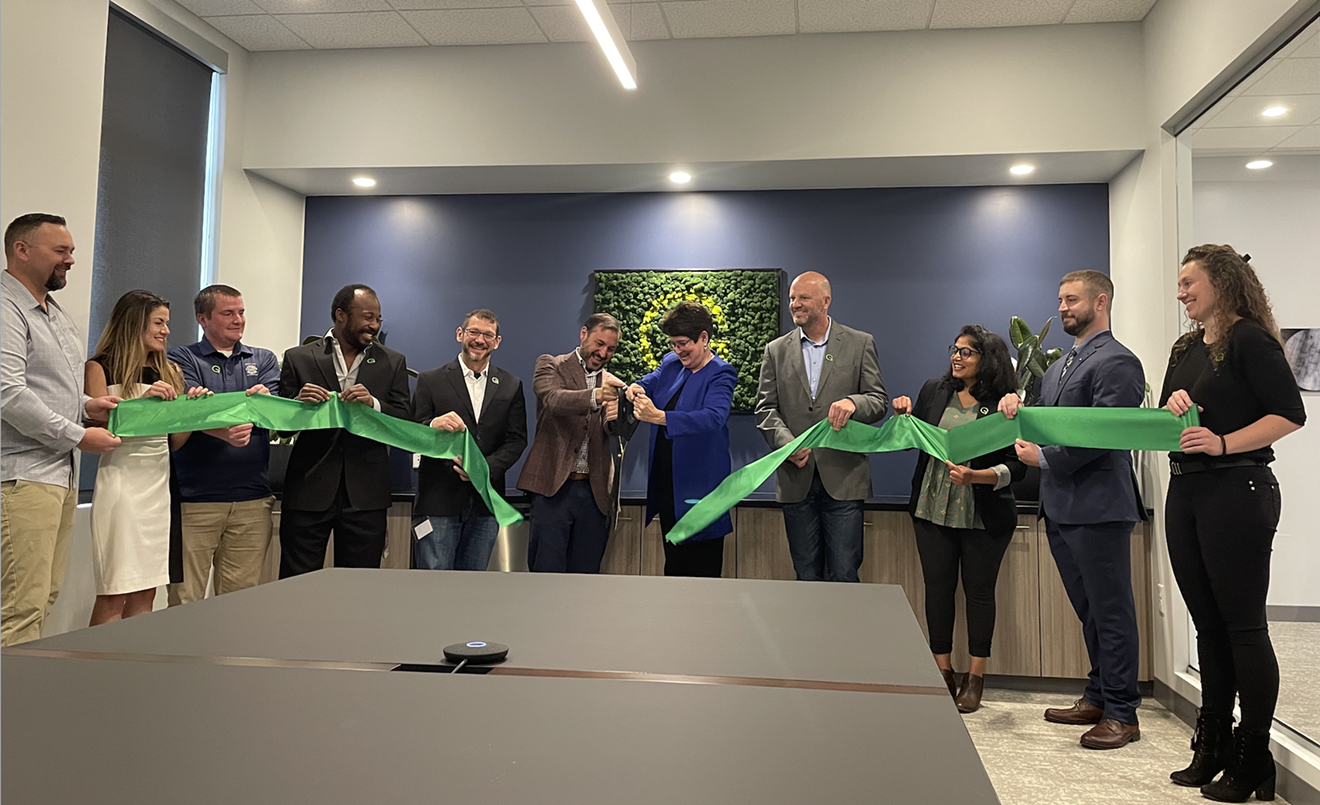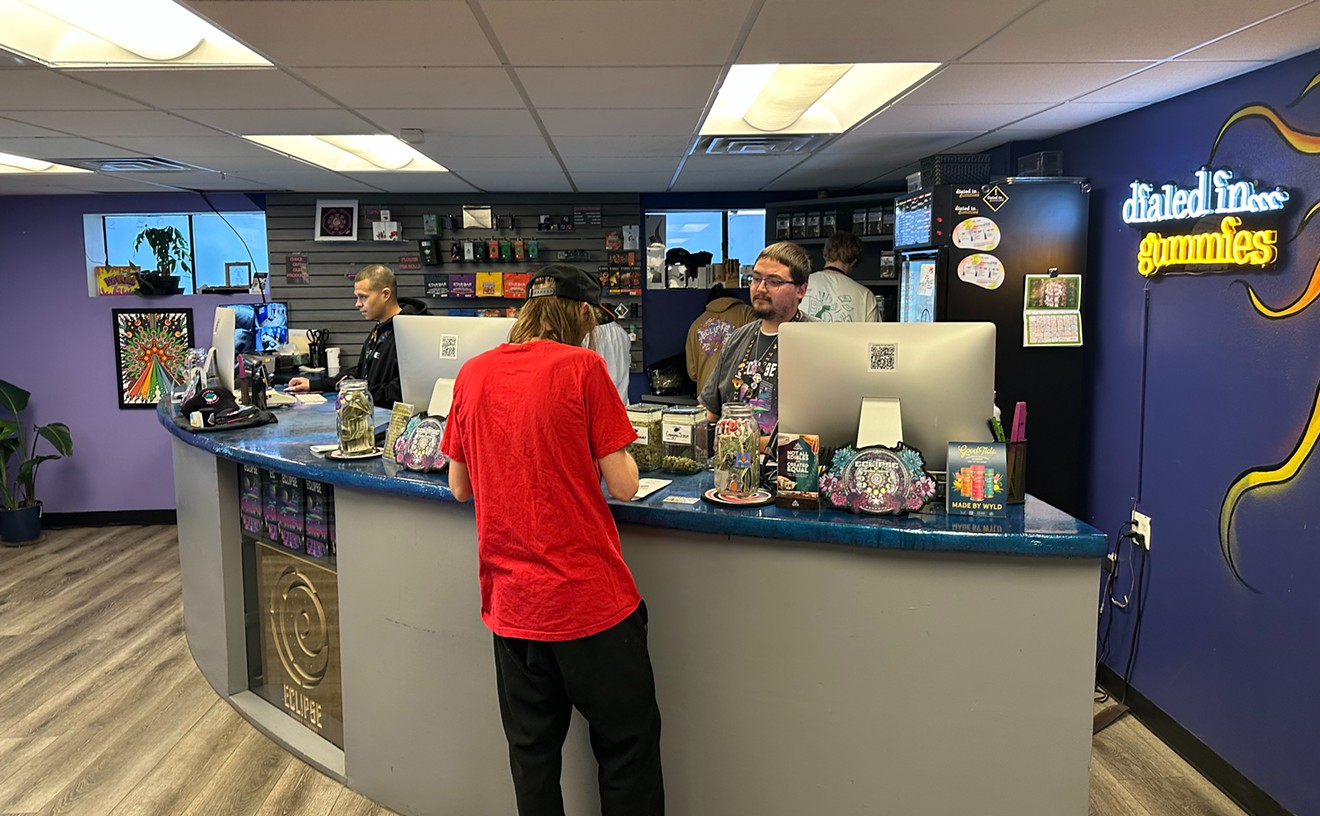In 2014, the same year that recreational dispensaries opened in Colorado, a local cannabis grower asked the three professors how microbe technology might work with pot, Bell remembers. None of the trio could answer the question, so they researched cannabis cultivation and began surveying more local growers.
They founded Growcentia a year later with a mission to improve soil quality for agriculture — and in Colorado, agriculture now included cannabis. They eventually partnered with the Farm, a Boulder dispensary and growing facility, to test out what is now Growcentia's flagship product: Mammoth P, a solution made to improve phosphorus content in soil.
“We got great results, and it was enough of a signal for us to decide [cannabis] would be a great original focus of our company," remembers Bell, who is now chief revenue officer of Growcentia.
The majority of Growcentia’s business is currently based around cannabis growing, with products sold nationwide from the company's headquarters in Loveland. But even as they help cannabis growers, the founders haven't given up on their original idea: to help feed the world.
The trio began investigating agricultural problems while working at CSU, and discovered that phosphorus, a nutrient that promotes root growth and maturity in plants, binds with minerals in soil over time and becomes locked away from plant feeding. There are stores of phosphorus in agricultural soil that can be tapped into with the right microbial consortium, Bell explains, which frees the phosphorus for plant uptake without the need for more fertilizer.
The resulting microbial consortium, a mix of four different microbes that promote fermentation, became Mammoth P, a liquid feeding product used to increase crop yield. Bell says the company originally pitched the idea to farmers to improve their soil health, but realized that unless something improves crop yields quickly, farmers can’t afford the investment.
Typically, Bell says, the adoption cycle for a new agricultural product takes three to five years. Farmers will perform a trial run with a row of crops in the first year, and if they see positive results, might try the product on three rows the next year. If things continue to go well, farmers might expand to an acre, and then go all in for ten acres or more.

Matt Wallenstein (from left), Colin Bell and Richard Conant started developing Growcentia's technology at Colorado State University.
Catie Cheshire
Seven years after the company launched, Growcentia was outgrowing its laboratory and warehouse locations in Fort Collins, and needed to find a new home. The founders wanted to stay in northern Colorado — Conant is still a professor at CSU, while Wallenstein is a professor emeritus — and agreed to move to the Centerra industrial project in Loveland.
Although most of Growcentia’s business clients are cannabis growers, it’s not a licensed cannabis company, and it doesn’t grow or even touch cannabis on site. As a result, the company can be located in Loveland, where all forms of commercial marijuana are banned. And the team still hopes to expand into new markets: A home garden line debuted last summer, and ownership has hired experts in horticulture with plans to break into that world, too.
The new Growcentia space held a grand opening on May 20 with Loveland Mayor Jacki Marsh. It joins a facility that also hosts an Amazon distribution center, a Home Depot distribution center and NORCO Volleyball facilities, among other businesses. Growcentia's new headquarters can now house microbe research, product development, manufacturing and shipping under one roof. In one laboratory, over 5,000 microbes are stored in freezers kept at 80 degrees below zero. In another, fermentation flasks akin to those at a brewery incubate the final product.
Growcentia CEO Scott Wiley, who likes to call microbes "invisible bugs," says the company aims to patent and release two new products by the end of 2022, Mammoth N and Mammoth K; the new plant food would use microbes to help spur nitrogen and potassium content in soil.
“The way we think about agriculture is as an agro-ecosystem," he explains, "using science to harness nature and put it to work."











